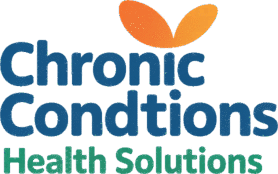
Have you ever considered how the most dangerous health issues often hide in plain sight? Silent chronic conditions, such as hypertension and diabetes, present significant challenges due to their lack of obvious symptoms. Understanding these conditions is essential for effective management and early intervention.
Understanding silent chronic conditions is vital for effective management. This visual highlights key conditions and the critical role of early action.
Health issues developing gradually without noticeable symptoms until significant progression.
Early awareness is key for effective management.
Significantly improves treatment options and long-term outcomes.
Personalized interventions enhance quality of life.
Can complicate development and health, often going undetected.
Parental vigilance and early intervention are crucial.
Early indicators of potential underlying health issues in children.
Developmental screenings lead to better outcomes.
Silent chronic conditions can often go unnoticed, leading to significant long-term effects on an individual's health and well-being. These conditions, which often lack overt symptoms, can create challenges for both patients and healthcare providers. At Chronic Conditions Health Solutions, we believe that understanding these conditions is crucial for effective management and early intervention in chronic disease.
Have you ever heard someone say they felt fine, only to find out later they had a chronic condition? This is more common than you might think! By recognizing the signs—often subtle or non-existent—individuals can take proactive steps toward better health.

Silent chronic conditions are health issues that develop gradually, often without noticeable symptoms until they've progressed significantly. Some examples include hypertension, diabetes, and certain autoimmune diseases. It's essential for patients to understand that early intervention can lead to better outcomes.
Effective management of these conditions often starts with awareness. Too often, individuals may dismiss subtle symptoms as stress or fatigue until they escalate. That's why education is a key component of our approach at Chronic Conditions Health Solutions.
Early detection of silent chronic conditions can significantly improve treatment options and outcomes. By catching these issues early, we can implement personalized interventions that enhance quality of life. Studies have shown that individuals who actively engage in routine screenings and health assessments tend to fare better in managing their conditions. For more insights on how early detection can prevent serious health issues, read our article on how early detection prevents chronic diseases.
At Chronic Conditions Health Solutions, we emphasize the need for regular health evaluations to ensure that any potential health concerns are addressed promptly.
Children are not immune to silent chronic conditions, which can complicate their development and health. Conditions like asthma, high cholesterol, and even certain types of heart disease can go undetected in young patients. It's crucial for parents and caregivers to be aware of the signs and advocate for their children's health.
Recognizing these conditions early allows for timely intervention, which can make a world of difference in a child's health journey. As parents, being vigilant and proactive can set the stage for healthier futures.

Developmental delays are often a red flag that something may be awry with a child’s health. These delays can manifest in various ways, such as difficulties in speech, motor skills, or social interactions. The earlier we can recognize these signs, the better the outcomes for our children.
By utilizing developmental screenings, parents and healthcare providers can work together to address potential challenges. I encourage everyone to connect with pediatric healthcare professionals to discuss any concerns regarding their child's development. Remember, early intervention is key!
Did you know? Regularly monitoring your blood pressure and blood sugar levels can catch silent chronic conditions early. Consider investing in a home monitoring device as part of your health toolkit. This proactive approach empowers you to take charge of your health and detect any potential issues before they escalate.
As we wrap up our exploration of silent chronic conditions, it’s vital to focus on effective early intervention strategies. Recognizing the signs early on can make a significant difference in managing these conditions and improving health outcomes. With the right tools and approaches, we can navigate the complexities of care together!
Remember, early detection is not just about identifying problems; it’s about creating a proactive plan that empowers you or your child. Here are some key takeaways to keep in mind:
Taking charge of your health is a journey that begins with small, intentional steps. I encourage you to reflect on what proactive health management looks like for you or your family. Have you considered scheduling regular health screenings? Establishing a routine can foster a sense of control and awareness about your health status.
Additionally, consider these actionable steps to enhance your health management:
While navigating the healthcare system can be daunting, utilizing available resources can significantly lessen the burden. At Chronic Conditions Health Solutions, we are dedicated to providing tailored interventions that cater to individual needs. By connecting with community support, you can build a strong network that enhances your journey toward better health. For valuable tips on managing daily life with these conditions, explore our article on living well with chronic conditions.
Your health journey starts with a conversation! Don’t hesitate to bring up your concerns with your physician. Ask about screening options and how early intervention can benefit you or your child. The more informed you are, the better equipped you’ll be to advocate for your health.
Consider preparing a list of questions prior to your appointment to ensure you cover everything important. Being proactive in these discussions can lead to better healthcare outcomes!
Seeking ongoing support is crucial. Here are some resources that can be incredibly beneficial:
Don’t forget that you’re not alone in this journey. Together, we can navigate the complexities of chronic health conditions effectively!
Building resilience is essential for families facing chronic health challenges. It’s about cultivating a positive mindset and developing coping strategies that can help manage stress. Consider incorporating family activities that promote health and well-being, like cooking nutritious meals together or engaging in physical activities.
Some strategies to foster resilience include:
Ultimately, resilience begins at home, and by supporting one another, families can thrive even in the face of challenges. Let’s take steps together toward a healthier future!
Here are some common questions regarding silent chronic conditions, early detection, and management:
Here is a quick recap of the important points discussed in the article:
At Chronic Conditions Health Solutions, we're dedicated to transforming chronic disease management through personalized exercise physiology and evidence-based lifestyle interventions. Dr. Emilia Carter and our team empower you to achieve better health outcomes and a more fulfilling life. Your well-being is our priority.
